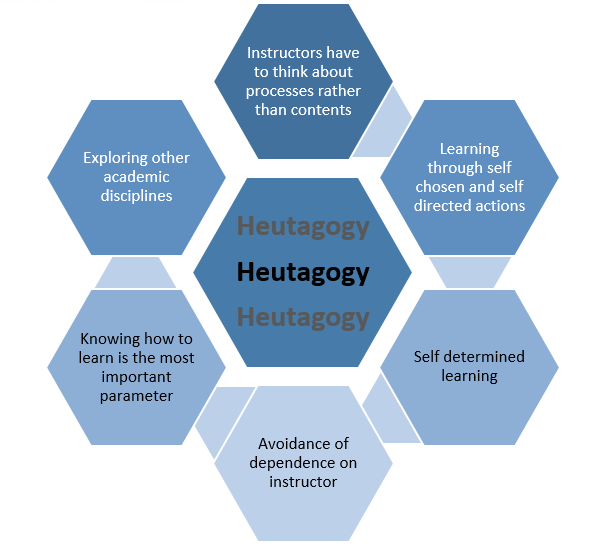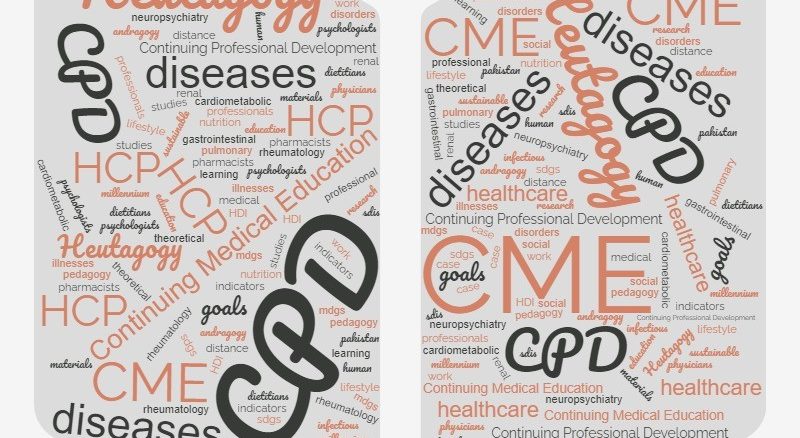- August 24, 2024
- catapultpk
- Comment: 0
- CPD & CME
Overview: It is extremely important for the healthcare professionals (HCPs) to keep themselves abreast with continuing medical education (CME) and continuing professional development (CPD). CME and CPD enable them to deliver high quality, evidence-based health care to all the patients. Realization of the importance of CME/CPD is the first step for achieving better patient outcome and good clinical practice. There are ample CME/CPD opportunities available and more and more programs are offered by various institutes, both as part of the Institutes’ postgraduate programs and as standalone modules. Besides, various medical societies and smaller faculties offer short CME/CDP opportunities which are concise, cover focused areas, offer flexible timings and distance learning options.
Once again it is to be emphasized here that realization of their need is the imperative. The need of refreshing oneself with the latest developments in the field of therapeutics should remain top priority, because medical science is probably the most active and highly evolving academic area of life sciences. Reinvesting the monetary and time resource for the community’s wellbeing is the best investment and more so the responsibility of all who are attached to the healthcare profession.

Pedagogy & Andragogy: During the initial phase of academics of the medical fraternity, the learning modalities are with more instructor control and more course structuring i.e. pedagogical, but as the HCPs graduate and are given license to practice medicine, the learning modalities shift towards higher learner maturity and higher autonomy i.e. andragogical.

Heutagogy: While heutagogy is a learning and teaching approach that primarily rely on one’s own powers, judgment or determination. Unlike the traditional pedagogic paradigm where learning is taken up in a controlled environment under the patronages of a ‘knowledge professionals’ and the learners have the conformity and passive adhesiveness to the previously designed instructional standards, a heutagogical approach is more learner centered. It is inclined on developing the professionals’ learning independence and allowing them to take control of their self-learning. Its primary objective is the individual enablement through preparing the individuals with a variety of knowledge, skills and aptitudes to help them fulfill their competencies which pertaining to the medical fraternity ultimately benefits the community.
Healthcare in Pakistan: Pakistan is world’s sixth most populous country but with low Human Development Index (HDI) and lagging behind in Millennium Development Goals (MDGs), Sustainable Development Goals (SDGs) and Social Development Indicators (SDIs). Spill-over effects of these shortfalls ultimately disturbs the health of population as well as the primary healthcare sector.
The healthcare in Pakistan is over-burdened with disease load most of the tropical disease including infectious diseases, non-infectious diseases, neuropsychiatric illnesses and physical injuries. This situation demands a strong health care delivery through well trained and academically updated HCPs from family medicine.
Unfortunately, there are no well-defined regulations to compel the HCPs in Pakistan to keep themselves abreast with updated medical knowledge. Only few stake holders from the medical and educational institutes have been facilitating them in academic activities. Improved patient care through good clinical practices (GCP) could be achieved through regular academic programs. This will update not only the basic knowledge but also apprise them with the developments in the world of therapeutics.
Primary (Family medicine), secondary, tertiary and quaternary health care services: Family medicine domain has the front line position in health care delivery because they work in the community. They provide preventive, curative and rehabilitative services at low cost. They take up the major load of the healthcare delivery to the community. Their services are invaluable and they must be preserved and uplifted through good governance of their educational and developmental needs.
It’s time to have some regulations in place. Well organized CME/CDP programs for all the family physicians should be made mandatory. This will improve the healthcare delivery and patient outcome. This will also lessen the disease and work burden on the HCPs due to improved patient outcomes. Resulting GCP will also lower the healthcare cost, because patients will regain health at a faster pace, there will be less hospitalization in term of numbers and duration. At the same time the disease and healthcare burden will lessen on the secondary, tertiary and quaternary health care services.
Distance Learning: Employing the current distance learning resources HCPs can easily adjust their working schedule to accommodate these integral learning endeavors. At the same time sensitizing HCPs to realize the need of continuing medical education and continuing professional development is their responsibility as well. As described earlier – a heutagogical approach is needed which is more learner centered. This approach will also give learning independence and controlled self-learning. It will enable and prepare them through variety of knowledge, skills and aptitudes. They will fulfill their competencies which will ultimately benefits the community.
CME/CDP programs for HCPs: We are in the process of developing CME/CDP programs for HCPs. Their lifelong learning commitment will be fulfilled through high-quality professional development opportunities. The activities will address the areas which are based on the required areas of importance in healthcare delivery:
- Clinical diagnosis and management of diseases and disorders
- Updates on the latest research and techniques
- Current issues affecting the good clinical practice in Pakistan
All HCPs will be targeted including; physicians, physician assistants, registered nurses, pharmacists, dietitians and psychologists. Updated theoretical materials, case studies and the published research work will be taken up, while the topics and delivery methodologies will be selected according to prevalent issues and HCPs’ needs like; cardiometabolic disorders, infectious diseases, neuropsychiatry illnesses, gastrointestinal, renal and pulmonary diseases, rheumatology, nutrition and lifestyle medicine and other general medical topics.
Ensuring physical and mental well-being of all should be the combined responsibility of all concerned. As a nation we had done extremely well during the Covid-19 global health crisis, now definitive steps in the context of CDP/CME are needed to decrease human suffering through better approach towards healthcare delivery.

